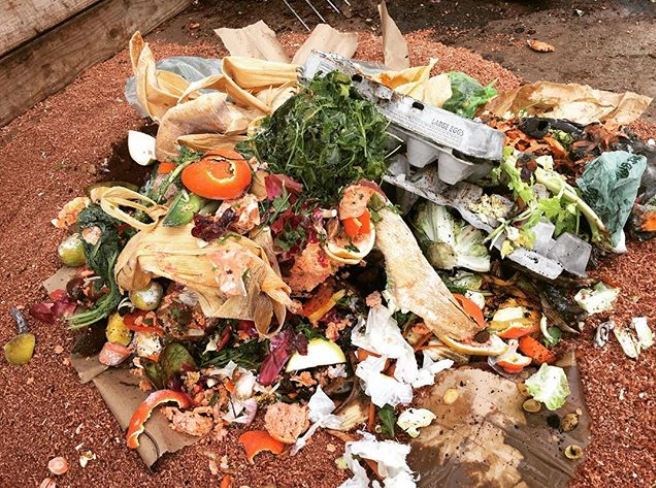It sounds like a conservationist's daydream: a service that turns food waste from local residents and local businesses into garden compost; then delivers that compost to Brooklynites via bicycles; all while providing young people in the community jobs.
But it isn't a daydream. It's BK Rot . And if you visit its 1278 Myrtle Avenue location in Bushwick, you'll find an organization as functional and alive as the microbes in the soil it creates.
Every Sunday between noon and 3:00pm, residents are invited to bring their banana peels, wilted bouquets and miscellaneous organic waste (omitting the meat, dairy and other non-compostables), and either grab a shovel or let the workers handle it in exchange for a donation.
"There are different ways people can participate," said Sandy Nurse, who partnered with community organizers to launch the non-profit in 2013 after a stint in the United Nations World Food Program. "We have some serious die-hards who've been coming for years."

BK Rot also sends bikers to participating restaurants and markets to pick up food waste and divert it from the dumpster. The service is popular, with a waiting list of local businesses, which BK Rot's website describes as "rather large."
Since its launch, BK Rot has grown out of its first two locations, most recently, settling into its current one: Know Waste Lands in Bushwick. Here, they turn 10 - 12,000 pounds of collected organic waste into approximately three tons of rich black compost each month, providing jobs for six young people from the community.
"You have a really nurturing team of people bringing young people in and mentoring them," Nurse said. "It's an opportunity for them to have work year-round and keep them engaged in the movement."
The compost is used for house plants, community green spaces and for soil remediation projects — an often overlooked but important step in planting an urban garden.

"There's all this interest in gardening now, and that's great," said Nurse. "But it's important that people know that building up the soil has to be part of the process."
Lead is a common contaminant in Brooklyn soil, according to a recent study by Columbia University. The study also found that adding compost can actually prevent root systems from absorbing the harmful metal.
Nurse would like to see more outreach, education and awareness around the food waste issue.
"It's not an easy thing to get millions of people to understand how important it is to separate their waste," she said. "It's a huge undertaking, but it's incredibly necessary and important."
In the future, Nurse hopes to expand BK Rot's bike hauling range to work with more businesses.
"We're experimenting with different partnerships and technologies to see how we can scale up without compromising the values and ethos of the work," she said.
"We're excited. We feel supported by our community."




